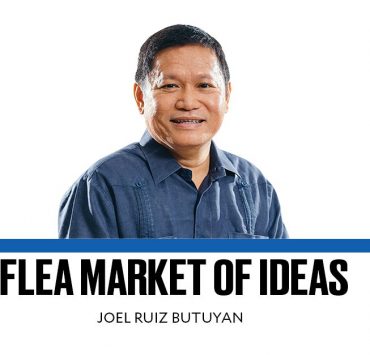Fighting corruption: What we can become when we institutionalize money trail

To institutionalize a money trail means establishing procedures and systems to track and document financial transactions, especially in cases of potential illegal activity or corruption.
Gambling is one domain where illicit transactions occur. Cardinal Pablo David, president of the Catholic Bishops’ Conference of the Philippines, said, “The social ills caused by [online] gambling far outweigh the supposed billions in revenue it brings,” adding that “gambling is criminal through and through.”
Even our elections are plagued with corruption. The multitude of cases filed against alleged election manipulation stands as a testament, albeit all have gone up in smoke. The only case perhaps pending is the 61 million counts of cyber-fraud related to the 2025 elections filed with the National Bureau of Investigation against Comelec chair George Garcia. We can only wonder where these cases may lead and how their outcome will impact the 2028 presidential election.
Vote buying remains a perennial problem, funded by budget insertions, for instance, the Ayuda para sa Kapos ang Kita Program (Akap), Assistance to Individuals in Crisis Situation (AICS), and Tulong Panghanapbuhay sa Ating Disadvantaged/Displaced Workers (Tupad). Baguio City Mayor Benjamin Magalong had bared what he labeled as the “30-30-30” scheme that allegedly involved allocating P30 million each from Akap or AICS, MAIP (Medical Assistance for Indigent and Financially Incapacitated Patients), and Tupad funds, totaling P90 million, to lawmakers who hosted administration-backed political sorties.
The government spends billions of pesos on flood management programs, yet flooding remains unresolved. Economist, professor, and columnist Cielito Habito said: “The one thing blocking our nation’s ability to fulfill its widely acknowledged potential is our corrupt public officials … crack the whip on corruption, rebuild the many institutions destroyed by it, and set the foundation for economic, social and political progress.” (see “Marcos’ ideal legacy,” No Free Lunch, 7/22/25)
On July 25, 2025, the Supreme Court declared the articles of impeachment filed against Vice President Sara Duterte unconstitutional. Will this ruling stay or will it expose how far some of those in Congress will go to protect alliances? The upside of an impeachment trial is that bank records can be opened, which are key to proving or disproving claims of corruption against the Vice President. This is good for the nation, but in our Constitution, only the President, Vice President, members of the Supreme Court, members of constitutional commissions, and the Ombudsman can be impeached. What about other high-ranking officials, when our law provides that bank transactions are confidential?
The late Jesse Robredo said it rather diplomatically: “It’s not enough for an official to be good. There has to be a system that forces them to be good.” This begs the question: What system or institutional reform is necessary to minimize if not end corruption?
The Bangko Sentral ng Pilipinas is at the forefront of efforts to ease the bank secrecy law with a third condition—i.e., in cases where the inquiry or examination is made by the BSP, provided there is reasonable ground to believe that fraud, serious irregularity, or unlawful activity has been or is being committed by persons, and that it is necessary to look into the deposit to establish such fraud, irregularity, or unlawful activity.
Professor Randy David, in his article “The sociology of corruption” (Public Lives, 10/20/24), said: “Unless we acknowledge this as the root of our nation’s persistent crisis … there is no way we can pull ourselves out of the rut in which we are stuck.”
NORMAN CABRERA,
president, Kapatiran Party

















What Asean reveals about partnership